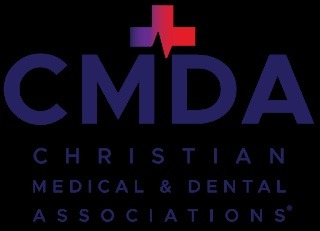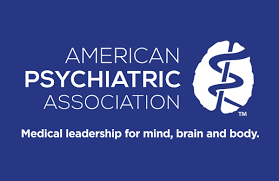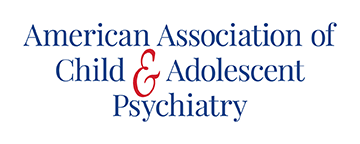After-hours triage: Closed
Our Approach: A Theological Framework for Mental Health Care
Biblical Anthropology of Humans
Our approach to mental health care is grounded in a Christian anthropology that affirms an at minimum a dual yet deeply integrated view of personhood—body and soul, flesh and spirit, of matter and immaterial— created in the image of God (Genesis 1:26–27). Human beings are neither mere souls trapped in physical shells nor bodies driven by impersonal forces, but unified beings, embodied souls, reflecting God's intentional design. The body, enlivened by God's breath (Genesis 2:7), is not just a temporary vessel but an essential part of our identity, bearing the marks of God's good creation despite the corruption of the Fall (Romans 8:20–23). The soul, as the immaterial essence, is morally accountable-warring between flesh and the spirit, seat of consciousness and destined for eternal life.
At conversion, the soul is spiritually awakened, the body quickened through the regenerating work of the Holy Spirit (Ephesians 2:1–5; Titus 3:5), granting the believer a capacity to perceive and respond through spiritual senses, much like the body engages the physical world through natural senses (1 Corinthians 2:14–16; Hebrews 5:14).
Yet this dual nature—body and soul—cannot be neatly separated or distinguished. As Hebrews 4:12 declares, "For the word of God is living and active, sharper than any two-edged sword, piercing to the division of soul and of spirit, of joints and of marrow, and discerning the thoughts and intentions of the heart." Only God's Word can truly discern and separate the complex interplay between the physical and spiritual dimensions of our being.
The Effects of the Fall and Care Implications
The Fall (Genesis 3) has impacted every dimension of human existence—biological, psychological, social, and spiritual—introducing disorder into God's good creation. Mental illness is one manifestation of this brokenness.
These conditions affect the affective, cognitive, and behavioral domains of human functioning and are typically identified by the presence of the five D's: Deviance, Distress, Dysfunction, Duration, and Danger. Because of their rootedness in natural processes, effective treatment must begin by addressing these underlying issues through appropriate medical, psychological, and developmental interventions. Nevertheless, spiritual factors may also be involved—either as contributing causes, perpetuating dynamics or as consequences of spiritual realities. In many cases, both are present in varying degrees.
Discerning where the spiritual ends and the biological begins or vice versa is rarely straightforward and requires both deep clinical expertise and spiritual discernment. Even then, clear distinctions are not always possible. For example, feelings of spiritual despair may deepen depression, or biological imbalances may hinder one's ability to experience God's presence.
Because of this complexity, the typical escalation of care strategy used by most care protocols is not adequate as it often leads to delays in the right interventions, prolonged suffering and preventable real world ramifications in many cases.
Here a rational, flexible approach is essential. This requires an early evidence-based comprehensive evaluation and specialized spiritual history taking along with expert formulation and treatment planning. Initial care may need to prioritize medical and psychiatric stabilization. Spiritual interventions maybe integrated sequentially or concurrently depending on the presenting context.
The Church as a Healing Community
The local church is called to be a community of grace, truth, and healing (Galatians 6:2; James 5:14–16). It is not a replacement for clinical care but a vital complement, offering spiritual formation, relational support, and a context for sanctification and discipleship. The church must be equipped to walk alongside those with mental illness, providing compassionate care that addresses both spiritual and practical needs. Christian friendship and hospitality are powerful tools in reclaiming the personhood of those suffering from mental illness.
The church must resist cultural and theological stereotypes that stigmatize mental illness and instead embody the compassion of Christ, who welcomed the marginalized and bore our infirmities (Matthew 8:17). This includes fostering environments where biological and psychological interventions are affirmed as God's good gifts, while also offering spiritual practices—prayer, worship, and fellowship—that are tailored to the individual's needs. As Dr. Dan Blazer notes, "Those who bear the marks of despair on their bodies need a community that bears the world's only sure hope in its body." The church, as the body of Christ, is called to embody this hope, reflecting God's redemptive love in both word and deed.
The Gospel And Wholeness
We believe that Jesus Christ came to redeem the whole person—body and soul (Luke 4:18–19; 1 Thessalonians 5:23). Through His life, death, and resurrection, He offers forgiveness, healing, and hope. While full restoration awaits the return of Christ (2 Corinthians 5:17; Romans 8:23), believers can experience real transformation now through the renewing work of the Holy Spirit (Titus 3:5).
Jesus' healing of the demonized man in the region of the Gerasene (Luke 8:26–39) illustrates this restoration: the man was not only freed from oppression but also restored to dignity, community, and clarity of mind. He was found "clothed and in his right mind, sitting at the feet of Jesus" (Luke 8:35), a powerful image of healing that encompasses the whole person.
While we seek relief and healing, we also embrace the redemptive purposes of God in our pain. Our hope is not ultimately in therapy or medicine, but in the God who raises the dead (2 Corinthians 1:9–10). As David Weiss wrote, "Though my illness persists, I have finally met the God I had heard about but never truly experienced… A God who manifests his genius by salvaging good from the evil in our lives." God's presence in suffering reminds us that weakness does not diminish our personhood—it is often the very place where God's power is made perfect (2 Corinthians 12:9).
Our Eschatological Hope
Our eschatological hope further shapes this framework. The promise of bodily resurrection (1 Corinthians 15:42–44) affirms that embodiment is not a temporary state but an eternal reality. Mental illness, while a present reality, does not have the final word. This hope does not diminish the need for care in the present but provides a horizon of healing, encouraging perseverance and trust in God's redemptive plan. The church, as a foretaste of this future, is called to walk with those who suffer, offering both practical support and the assurance of God's ultimate restoration.
Contact
Connect
Call: (817) 518-4028
© 2025. All rights reserved.
Location Details
Address
Ste 105, 5004 Thompson Terrace, Colleyville, TX, 76034






Fax: (817) 259-2614